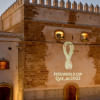Dhaka's crippling gridlock
Those on the road yesterday experienced firsthand the agony of Dhaka's traffic gridlock, this time caused by a DNCC event and a procession of the education ministry. The city, where chaos rules over the traffic system, came to a virtual standstill. People suffered in the blistering heat of summer, sitting in vehicles, some falling ill. Does anyone in the administration really care? How much did the country lose in productivity?
Why would several streets be closed during peak hours for a ceremony organised by the city corporation? And why on earth would the education ministry bring out a procession occupying the main streets? Is this the kind of education the ministry is imparting that it is alright to obstruct public thoroughfare for observing Education Week? And while we are at it, why does each and every official programme have to be ceremonialised? In the digital age, can such programmes not be inaugurated via video-teleconference, without going through the trouble of physically going to the venue and adding to the congestion, thus sparing the public of the misery? What is more important -- the noise and the fanfare or the actual work? Do the authorities not understand that such needless sufferings ultimately overshadow the gains made, that it invokes more public ire than accolades?
One of the main reasons behind Dhaka's traffic snarl-ups is the movement of VVIPs by making roads off limits to traffic during their movement. It makes absolutely no sense to build infrastructure in order to reduce the gridlock and then not allow people to use it. Dhaka's traffic problem is horrific as it is, and we can do without mindless acts compounding it, as was done on Wednesday.

 For all latest news, follow The Daily Star's Google News channel.
For all latest news, follow The Daily Star's Google News channel. 








Comments